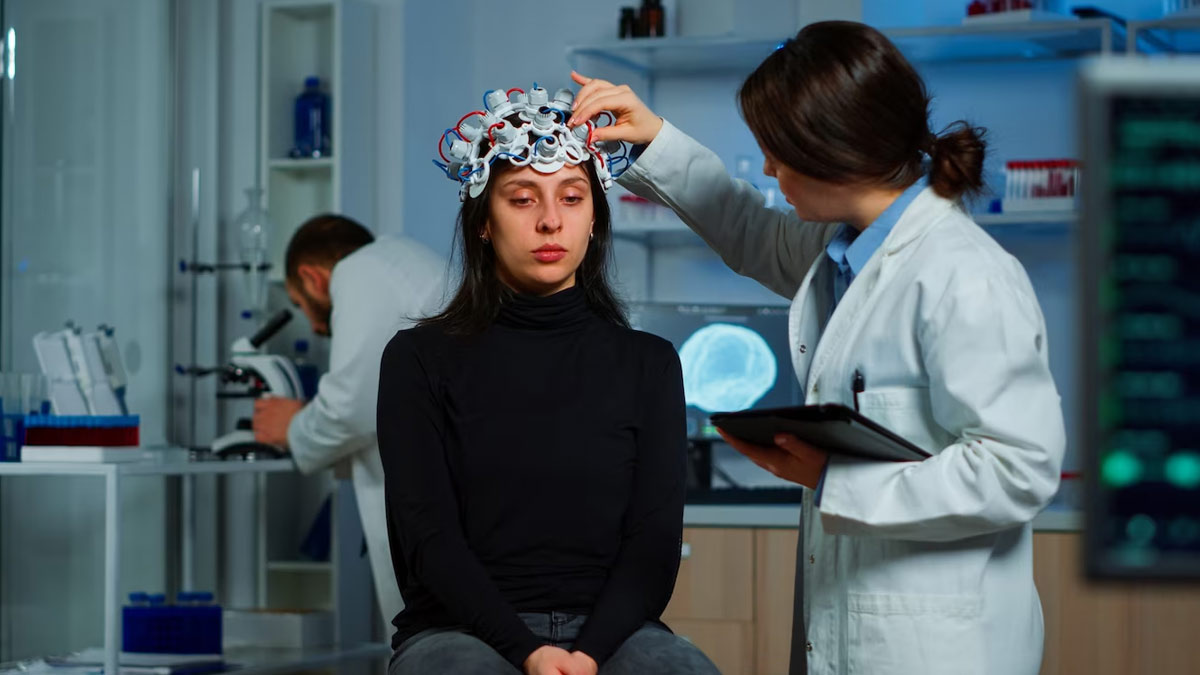
World Brain Tumour Day observed on June 8 every year is a poignant reminder of the immense challenges faced by individuals battling brain tumours and a global call to raise awareness, support, and provide solace to those affected.
Table of Content:-
When faced with the news of a brain tumour, a whirlwind of emotions sweeps across the affected individuals and their families. Shock and disbelief are often the first waves to crash, as the stark reality settles in. The impact of a brain tumour extends far beyond its physical manifestation, reverberating through the lives of those affected.
Dr Mohan Krishna J, Consultant Neurologist, Yashoda Hospitals, Hyderabad, explained the emotional impact of brain tumours.

The Emotional Impact of Brain Tumours
Dr Krishna said that any sickness results in anxiety and psychological adjustments. This sense of discomfort is exacerbated by serious illnesses like brain tumours. They can be anything from being unmotivated to irritable and, tragically, even aggressive. However, personality changes are not a common symptom of brain tumours.”
Psychological Distress in Brain Cancer Patients
Dr Krishna added that patients with brain cancer have a high prevalence of psychological distress, which has been reported to be second only to that in patients with lung cancer. But compared to systemic cancers, brain cancer offers a more complex model of dysfunction because symptoms can be brought on by both the emotional response to a life-threatening illness and the associated neurological and neuropsychological dysfunction. This is because of the location of the lesion in the brain and the neurological side effects of therapies like surgery, radiotherapy, and chemotherapy.
Also Read: World Brain Tumour Day: Can Excessive Smoking And Alcohol Consumption Increase The Risk?
Identifying Patients at Risk

Dr Krishna said that early intervention for patients at risk and efficient use of limited supportive care resources will be made possible by identifying which patients are most likely to experience considerable psychological distress and cognitive dysfunction.
The majority of research on emotion in brain cancer patients has concentrated on mood swings like depression, which have a significant influence on the quality of life. Reports of personality changes and mental disorders following brain neoplasms may also be attributed to the putative role of organic mechanisms, such as lesion site or treatment effects. While these changes are frequently thought to be an understandable reaction to the diagnosis, they may also be the result of other factors.
Understanding Personality Changes in Brain Tumours
Dr Krishna highlighted, “Our brains control everything about who we are, what we believe, and how we feel. The fact that a brain cancer or its treatment can alter a person's personality or behaviours may not come as a surprise in light of this.”
Some of the behavioural and personality changes brought on by brain tumours include the following:
- Irritation or hostility
- Bewilderment and oblivion
- Apathy (lack of motivation and interest)
- Sadness and emotional flatness
- Loss of inhibitions or constraints and inappropriate social or cultural behaviour
- Anxiety
- Mood swings or trouble in coordinating and planning
- Trouble recognising emotions in both yourself and others.
Also Read: Why Is World Brain Tumour Day Observed?
Behavioural and Personality Changes Associated with Brain Tumours

Dr Krishna listed the changes in personality and conduct associated with brain tumours as follows:
Growing brain tumours exert pressure on surrounding healthy brain cells, which can affect processes, functions, or body components controlled by those regions. When a tumour is located in the frontal lobe, responsible for emotions and personality, personality alterations are more likely to occur. Tumours in the frontal lobe can lead to socially inappropriate behaviour as they affect our ability to manage our behaviour and impulses. Additionally, pituitary tumours can cause personality changes when they disrupt the production of hormones, impacting sex drive and emotions.
Dr Krishna said that personality changes can also be attributed to brain swelling, known as oedema, which can be caused by the tumour itself or by treatments like chemotherapy, radiation, and surgery.
Medication interactions or the effects of many drugs can also cause confusion and mood changes. Antidepressants are one class of drugs that can result in further personality changes. Steroids can produce anxiety, anger, and mood swings, while they also help to minimise swelling and personality changes. A small percentage of persons may develop psychosis as a result of steroids.
Bottomline
Dr Krishna concluded, “A brain tumour diagnosis or its effects on quality of life can also naturally modify someone's personality. This has a significant impact on how someone feels and behaves. Similar to how dealing with several of a brain tumour's adverse symptoms or therapies can significantly change someone's attitude. Treatment and regular trips to the doctor can both significantly reduce energy levels. People frequently become less active than they once were as a result. Treatment and regular visits to the doctor can both significantly reduce energy levels.”
Disclaimer
The information in this article is provided by the expert, however, we recommend you to consult your expert for a diagnosis and treatment catered to your needs and medical history.
Also watch this video
How we keep this article up to date:
We work with experts and keep a close eye on the latest in health and wellness. Whenever there is a new research or helpful information, we update our articles with accurate and useful advice.
Current Version